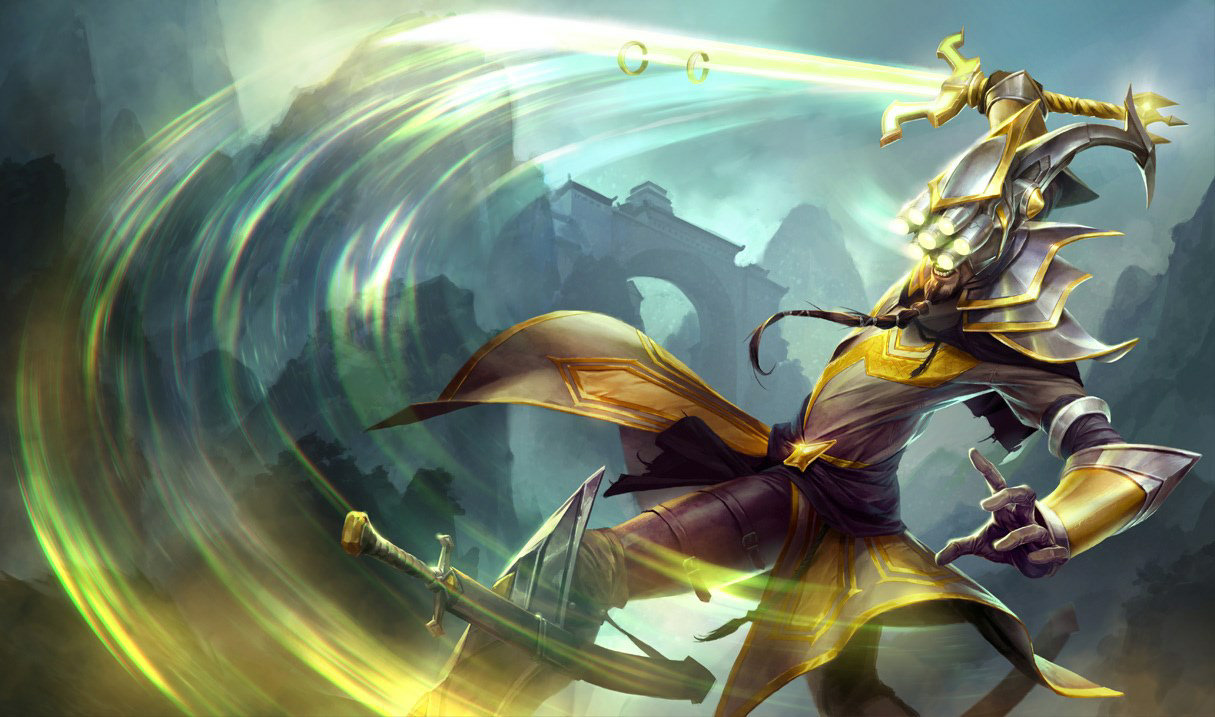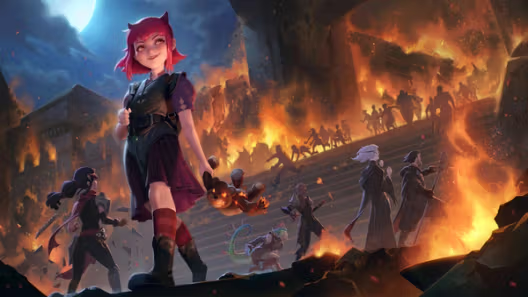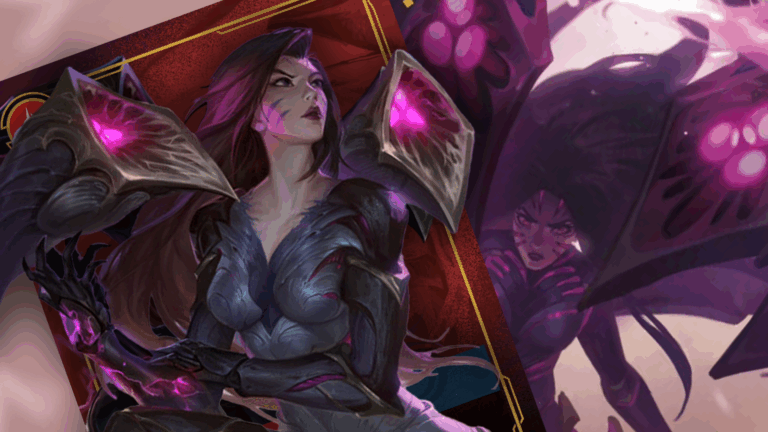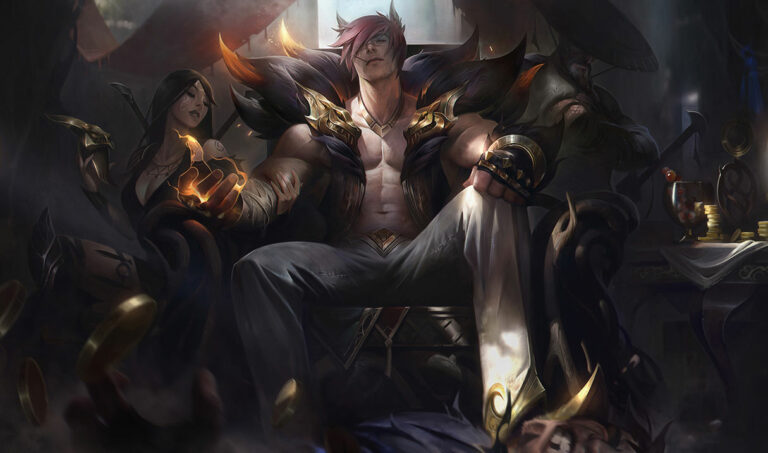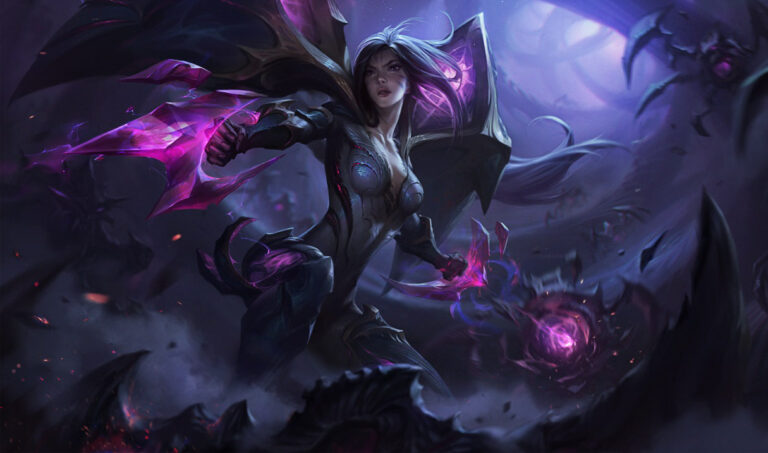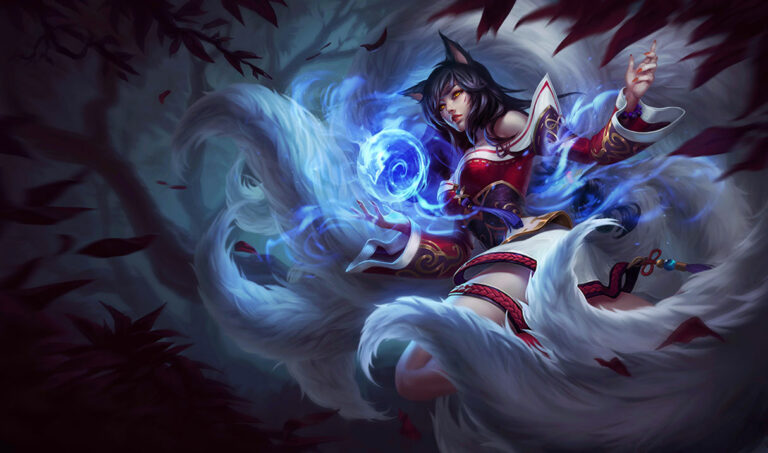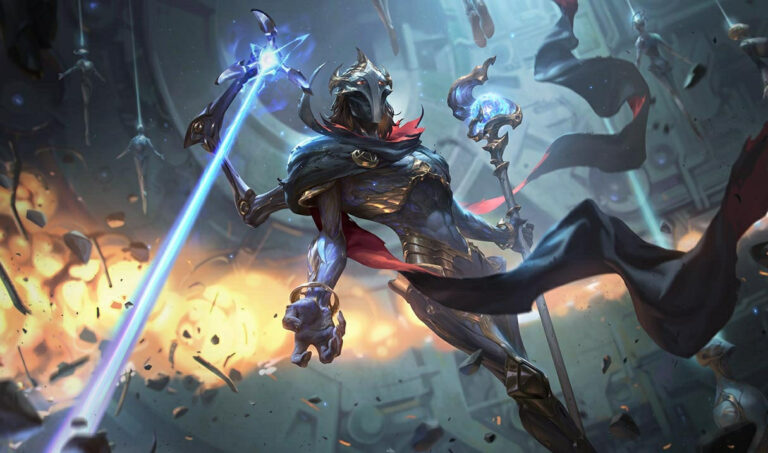Contents
One of the most popular jungle champions in League of Legends, Master Yi is no stranger to defining the tempo of a game. This is true for Riftbound as well, and he's already been making a storm in the wider metagame. Initially overlooked due to his arrival in the Origins companion box-set Proving Grounds, Yi is quickly becoming a deck that you cannot ignore.
With a focus on playing a unit and defending it, Yi weaves in and out of pressing aggressively and then defending threats, making him an aggressive tempo deck, akin to Mono-Blue Tempo in Magic: The Gathering. His ability to react means that he's very skill-dependent, and a lot of games depend on whether you can react effectively or if your opponent can play around said reactions.
In this guide, we're going to go over everything you need to know about Master Yi. With this, you'll be able to pick up Yi and hit the ground running, being able to play and practice going into the worldwide Origins release later this autumn.
Master Yi Tempo: The Deck
For this guide, we'll be using Presto's 2nd place list from the Riftbound Meta Weekly Tournament on August 9th, 2025 as an example.
Master Yi is a Tempo deck, with 15 Spells, 22 units and 3 gear. Over half of the deck's spells and units cost 4 or less, allowing you to play your cards within the first two turns to take control of the game. The aim of the deck is to hold both battlefields for as long as possible, playing defensively to remain in control.
One way to remain in control of the board is with spells, all of which either buff a friendly unit like Discipline, or counter the enemy's move like Defy. This allows you to control Showdowns with ease and keep the enemy at bay whilst boosting your own defenses, letting you set the pace to push to victory.
Another way Master Yi remains in control is through his unit Abilities, with smaller units like Pit Rookie and Clockwork Keeper creating crucial early-game value, all the way up to the heavy hitters such as Whiteflame Protector, often used as an epic game closer with it's +8 buff.
The strength of this deck is its flexibility around its strategy, allowing you to play reactively or proactively depending on the matchup, while still being able to execute your game plan. This deck has a pretty even winrate into most decks, but struggles against those with a ton of board-hate or de-buffing spells such as Viktor.
Champions
The two Champions in the main deck are Master Yi Honed and Qiyana Victorious. Both of these cards are within the Body domain, yet are used in different ways to boost the deck's reliability and progression.
Most decks opt to run only 1 copy of Master Yi Honed to fill the Chosen Champion slot. As a 6 Might unit for 7 (plus an Energy Cost of B), you'll ideally want to play this card in the late-game as an extra attacker or defender when needed. Due to his Ganking ability, and that he enters ready, you'll be able to quickly deploy him to a battlefield in a Showdown, for the extra block to save your hold or to create a devastating attack.
Qiyana Victorious is an essential piece to the deck, due to her very valuable ability letting you progress your board state quicker, or fish through your deck for more spells or another unit. For a 4 cost 4 Might with Deflect, you'll want to play her mid-game, ideally if you lose control of a battlefield and need to re-conquer, buffing her with spells and other units abilities to emerge victorious and claim your prize in an extra rune. This valuable Champion is a staple within Body-domain decks for a good reason.
Battlefield
This deck's battlefields are quite crucial to its gameplan, as they all accelerate resource-gain by channeling more runes or drawing more cards. Startipped Peak allows you to channel an extra rune exhausted each time you hold it (which, you're aiming to do forever), putting you ahead of your opponent with an extra rune per turn. Grove of the God-Willow works similarly, allowing you to draw an average of two cards per turn, whereas The Dreaming Tree lets you trade a card for a card- having to play a spell to draw a card.
In this deck, you'll want to begin the first game with Startipped Peak to accelerate the rune-draw to push to the first win. Afterwards, if you're going First, Grove of the God-Willow is the better pick as you'll be able to conquer early, but if going Second, The Dreaming Tree can be more valuable as you'll be able to play more spells earlier, and you can push back into the fight.
Sideboard
Master Yi's sideboard is very intriguing, and is an interesting take on sideboard building so early into this meta. With four different cards to choose from, this decision tends to fall into two categories; Proactive and Reactive.
For a reactive plan, Order cards Spirit's Rifuge and Stand United aim to Buff your units to control the game-state and take the higher ground. Stand United lets you gain extra value out of your Buff spells by hiding it at a Battlefield to be played at the perfect moment. Spirit's Rifuge on the other hand makes your defenses harder to break down, by giving any friendly Buffed unit Deflect to mitigate incoming spell and ability attacks.
For a reactive plan, Body cards Unyielding Spirit and Blitzcrank Impassive aiming to put an end to your opponent's schemes. Unyielding Spirit blocks your opponent's spell and ability damage for a turn, making it the perfect play in the mid to end-game state where you want to protect your board from any pesky damage spells such as Void Seeker or Kai'Sa's board wipe Icathian Rain. Whereas Blitzcrank Impassive is perfect for defusing a bad situation, letting you move an opponent's attacker to another battlefield to control and neutralize the threat.
Between variations of Master Yi decks, the sideboard is inconsistent. Some prefer to run damage spells such as Challenge or counterspells like Wind Wall rather than more Buff prevention. A controversial pick is Zhonya's Hourglass, which is a gear that allows you to retreat a friendly unit if it were to be killed; many Master Yi players choose to run this card in the Sideboard, some prefer it in the Main board. Some choose not to run the card at all, however I believe the card is simply too valuable to the deck's gameplan to pass up.
How to Play Master Yi - Tips and Things to Consider
It can be difficult to know where to begin with playing Master Yi, especially since he doesn't play like your typical Tempo deck; more similar to Mono Blue Aggro in Magic: The Gathering, where you play a lot of reactive spells with an aggressive base of units.
If you're struggling with piloting this deck, here's some tips to boost your gameplay:
- Be harsh with Mulligans: When beginning your games, it's never a bad choice to Mulligan. The best Master Yi starting hands have a 2 cost unit, and ideally a low cost spell. If you don't have a 2 cost unit, Mulligan any high cost cards, and any others that aren't great for your first few turns.
- Don't be afraid to pass: If it gets to your turn and you're happy with how the board state is, or you simply want to keep your runes open so you can play your cards right during a showdown, don't be afraid to just pass back to your opponent.
- Play your units wisely: Almost all of the units you play will have valuable abilities either on play or when a criteria is met. Don't play them out just cause you have them; if you think their on-play ability will be more valuable to you next turn, or if you have another card it would synergise with but not enough resources, its best to trust your instinct.
One important thing about this Legend is that his matchups take some time to learn. Don't expect to pick up the deck and play like a pro; you'll need to put the time into learning how other Legends approach you, and how you should approach them in response. Some matchups are inherently more difficult than others, but certainly not unwinnable.
Metagame Analysis: Should I Play Master Yi?
Within this week's Metagame Update, Master Yi saw a lot of Top 8 play; with 5 decks across two tournaments, he's shaping up to be a very popular pick. As more people are playing, tweaking, and mastering the deck, we're seeing more Top 8 wins across the whole meta, and a big rise in popularity across whole tournament metashares.
The downside is that we haven't seen many Master Yi winners, often losing out to Viktor and Sett within the top brackets. This doesn't mean the deck is bad by any means, it's still incredibly consistent into a lot of Legends, with a roughly 50% winrate into most decks.
Is learning to play Master Yi a good idea? I would say yes, as he is certainly showcasing himself to be a powerful deck in the current meta, and I believe this deck gets better with more practice, especially into our S-tier ranked Legends where he'll find the most difficulty performing; and with more consistent results, the Wuju Bladesman may see a rise into our S-tier ranking.
Closing Time
Master Yi is currently flourishing at a higher level, and is a fun deck to get stuck into. The tempo deck rewards mastery and skillful gameplay, but is also a great pick into the current metgame and seems like he'll be worth picking up when Origins releases this fall.
If you're looking for more great Riftbound content, including deck guides and other meta content, check out RIftbound.gg. We'll be here the whole way, giving you the best content on the internet and making sure you stay in the loop for Origins and far beyond.
In any case, thank you for your time, and I'll see you on the rift!

